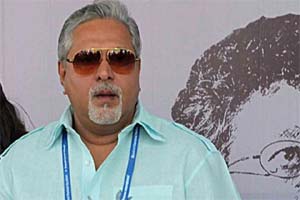Bankers’ attempts to take possession of Kingfisher Villa in Goa, pledged to it by Kingfisher Airlines, has met with fresh resistance. United Spirits (USL), which has been refusing to give it up, has produced a “villa manager” out of the blue, senior bankers told FE.
Bankers say the “manager” claims to be an employee of United Breweries (Holdings) but managing Kingfisher Villa. He is currently being cross examined by the consortium’s lawyers. One banker told FE, “The villa manager has appeared out of nowhere more than a year after the North Goa district collector started hearing the case.” Proving tenancy will help USL’s case, bankers said. The next round of hearings is slated for May 9 and 10. An order could be expected on May 12.
Kingfisher Villa, owned by UBHL, was mortgaged as collateral for loans given to Kingfisher Airlines. Bankers’ attempts to take possession of the villa have been continuously stalled by USL, which claims to be a tenant and, therefore, has the first right to buy the property.
Citing the Portuguese Civil Code, USL had taken the matter to a local court, requesting it to block an auction of the property by the banks. A banker familiar with the matter said the consortium has sought permission from the North Goa district collector of Goa to take possession of villa under the Sarfaesi Act but there has been no verdict so far.
Even after Goa became a part of the Indian Union in 1963, after several years of Portuguese rule, the Portuguese Civil Code of 1867 is still applicable in Goa when it comes to property issues and marriages. The source added that USL has produced electricity and water bills as proof it has been a tenant there for the last 11 years.
“The documents are not registered by any authority nor are they stamped,” the person cited above said.
The Goa bench of the Bombay High Court had given lenders the nod to take possession of Kingfisher Villa last year. Kingfisher Airlines, which has not flown since October 2012, owes around Rs 9,000 crore to a consortium of 17 bankers who have been trying to recover their money partly by selling securities pledged with them. These include real estate and shares in multiple group entities.
The case highlights problems faced by public sector banks when recovering money from defaulters; bankers say the legal process is a long and tedious one adding that promoters often resort to delaying tactics approaching one court after another. At present, regulations require state-owned banks to set a reserve price and call an auction to dispose of an asset.
If the first auction is not successful, a new reserve price must be fixed and a second auction called before a bilateral negotiation can begin. The problem, as bankers have pointed out, is that the process takes a long time, often defeating the purpose.
The legal process has been virtually ineffective, further frustrating the efforts of banks to recover their dues. Finance ministry data show that loans worth close to Rs 4 lakh crore were pending at debt recovery tribunals till FY15, up from Rs 2 lakh crore in FY14.
